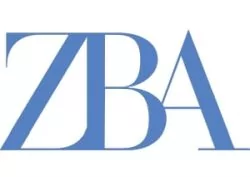I have long wondered, why do we not permit true cross border securitisations in India? What could help the market move towards this, so that originators can access deeper pools of global capital with structures and pricing that are optimal for them? Who are the potential corporates that will be able to access this market? What we consider in this article is the current laws and areas of change for Indian corporates to be able to sell their receivables on a cross border basis to a securitisation vehicle offshore, which aggregates all receivables and issues securitised rated listed notes to offshore investors.
Transactions involving foreign exchange by a resident in India have been broadly classified as either capital account transactions or current account transactions. A capital account transaction alters the assets or liabilities outside India of persons resident in India, or the assets and liabilities in India of persons resident outside India. Consequently, any direct sale of receivables does fall within a capital account transaction and there needs to be a generic permission under the Foreign Exchange Management Act 1999 (FEMA). Currently, under the Master Direction on Export of Goods and Services, dated January 1, 2016, as amended, the RBI permits third-party payments only for exporters under export transactions provided that the parties meet specified conditions such as: (i) there is an irrevocable written order backed by a tripartite agreement; or (ii) the name of the third-party payee (purchaser of receivables) is mentioned in the irrevocable order or invoice; and (c) it is a bona fide transaction. There are also various reporting requirements.
The exporter is permitted to utilise post-shipment export credit in foreign currency through a Rediscounting of Export Bills Abroad Scheme (EBR Scheme). This has many relevant features from a FEMA perspective such as ensuring the authorised dealer for the offshore discounting, is thesame as the authorised dealer from whom the packing credit has been utilised. However, there are other conditions such as export bills need to have a payment period of up to 180 days from the date of shipment, which may be relaxed, so that parties can agree on this commercially and permit securitisations to be flexibly structured. Again this can be liberalised so that all receivables can be sold by exporters to any offshore entity including a securitisation vehicle.
True cross border securitisation needs both export receivables that can be sold offshore, along with the permission to sell any type of financial receivables to an offshore entity in any jurisdiction (subject to FATF requirements). The buyer entity should not be limited to a company or trust but to any legal entity form permitted under the laws of that relevant jurisdiction. Allowing different entities to be purchasers will enable minimum tax leakage. While the discounting of export receivables is primarily neutral for foreign currency inflows, the RBI may consider allowing a window for sales of any receivables cross border free of any restriction. This can be regulated as sales of receivables, up to an aggregate amount like under the external commercial borrowing framework, for up to say, US 500 million per year per company. This could apply to consumer loans, housing loans, auto loans, etc. In order to ensure customer protection, the servicer, prior to default remains the Indian originator and following default, it may be either a back up servicer in India or offshore. If it is an offshore backup servicer, they would need to appoint an agent to do this function in India and the regulations can even make this a requirement. In the first stage, this model may not include a covered bond transaction, although this can be introduced as the market develops.
Credit Enhancement
While the above analysis dissects the RBI regulations from a FEMA perspective, changes must be made to the RBI Guidelines on Securitisation of Standard Assets in 2006 and RBI Revisions to the Guidelines on Securitisation Transactions in 2012 (RBI Domestic Securitisation Laws) as applicable for scheduled commercial banks, small finance banks, and NBFCs, which govern the ability of these entities to effect securitisations domestically. Domestic entities regulated by the RBI will need to be permitted by the relevant Department of RBI (DBOD) to sell to entities outside India. With the securitisation market generally dominated by banks and financial institutions, this is a critical enabling requirement. In addition, cross border securitisations will require cash collateral, liquidity facilities, first loss facilities to be provided by an originator in India and so a detailed review of the RBI Domestic Securitisation Laws is required. Lastly, cross border securitisation should be specifically permitted for housing finance companies, as the residential mortgage-backed securities market is a deep and evolved part of the global securitisation market.
While certain features, such as minimum holding and minimum retention, should be retained, a more detailed analysis should be conducted on what features of these will and will not be feasible for international securitisations so as to harmonise both and make transactions workable as well as prudently regulated.
Registration Requirements
The Government should exempt sales of mortgage debt to an offshore entity from compulsory registration under the Registration Act, 1908. Mortgages are often taken by way of an English registered mortgage deed, which is compulsorily registerable under the Registration Act 1908. However, for equitable mortgages by deposit of title deeds, certain states (such as Maharashtra and Gujarat) require registration for these mortgages, and thus equitable mortgages need to be exempted as required. These amendments need to be made by each State.
Public Registry to Record Sales
In order to ensure market transparency of sales of receivables to offshore entities, this may be recorded in an RBI database, which is publicly available. Such sales should be registered through a digital registry like the Central Registry of Securitisation Asset Reconstruction and Security Interest of India, at a nominal registration fee. Searches of key sale details should also be included.
Securitisation and Reconstruction of Financial Assets and Enforcement of Security Interest (SARFAESI)
The SARFAESI needs to be amended to ensure that security interests can be enforced by the offshore purchasing entities or any securitisation trustee in a mortgage-backed securitisation transaction and its servicer, or back-up servicer or other agents appointed by it. This amendment is required to ensure that all enforcement options available domestically to lenders are also available to offshore securitisation vehicles. This is a key part of the international rating agency analysis.
Stamp Duty
The stamp duty rates for assignment of receivables to entities outside of India need to be dealt with and amended to make transactions economically viable. Either this needs to be capped at a nominal amount or exempted across all states in India. For example, Rajasthan or Tamil Nadu only cap stamp duty for sales to Indian banks or asset reconstruction companies, which would not apply. There are also tax consequences that will need to be considered for de-recognition and excess interest spread transfers on a cross border basis.
Foreign Exchange Risk
The Indian Rupee receivables will be paid to an offshore securitisation entity. Since the Rupee cannot be remitted outside India and received in a foreign jurisdiction, the authorised dealer has to convert Rupee amounts when received before remitting the US converted amount to the securitisation entity. There will be swap structures that are required either with the authorised dealer in India, or offshore by the securitisation entity to minimise the risk of foreign exchange volatility. Appropriate swap products can be foreign exchange swaps, collars, caps, floors and options.
Factoring Act
Section 31 of the Factoring Act 2011 (Factoring Act) needs to be amended to ensure that both Rupee and foreign currency receivables (for example from exports) sold to offshore entities in any securitisation in accordance with FEMA will not be included within the scope of the Factoring Act and not regulated there under.
Conclusion
We believe that cross border securitisation, though complex, is an untapped market for Indian financial institutions and represents a great opportunity for raising prudent capital globally. Allowing this market to develop will help in innovating the offshore and the onshore structured market, thereby allowing a lower weighted average cost of raising capital as has been evidenced globally across other jurisdictions. However, this should be implemented in a holistic way, incorporating the lessons from the global sub-prime crisis, to create and sustain a robust market. We look forward to these developments.
The above is a generic analysis and should not be regarded as a substitute for specific advice based on the facts of a client's objectives and specific commercial agreements reached. Please do reach out to us at mail@zba.co.in for any queries.

